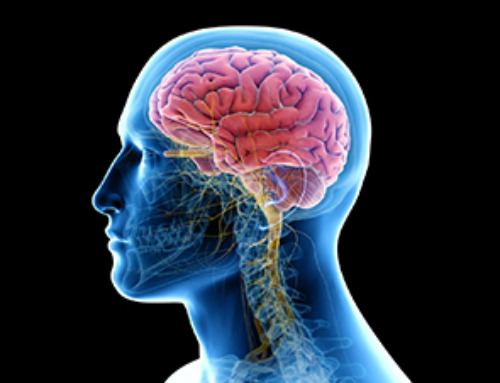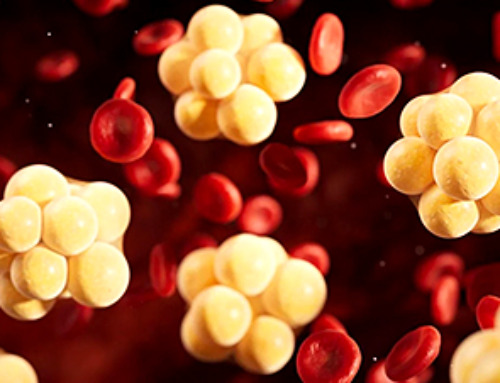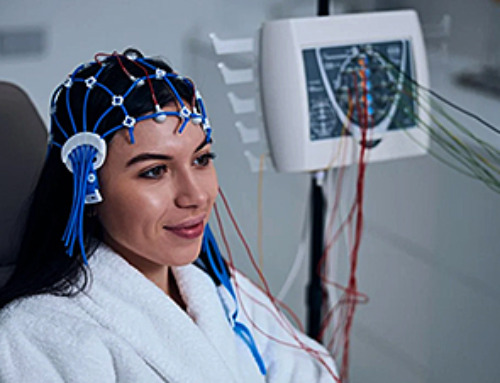COVID Moonshot's groundbreaking research introduces new nonpeptidic inhibitors for SARS-CoV-2, showcasing global collaboration and open science in advancing coronavirus therapeutics.
Although the group's work has been freely available since its inception in March 2020, the COVID Moonshot Consortium is finally formally reporting its results. The COVID Moonshot – an open-science, crowdsourced, and patent-free drug discovery campaign targeting the SARS-CoV-2 virus – has yielded a wealth of data on the virus's main protease, including insights that could pave the way for the development of new and better therapeutics.
"The lead therapeutics described by [these researchers] may not be ready in time to affect the current pandemic, considering the timelines and challenges of drug approval," write Brian Shoichet and Charles Craik in a related Perspective. "Nevertheless, the compounds and the techniques used to identify them may well affect human health in the future."
Global Collaboration and Drug Discovery Efforts
The novel collaboration included more than 200 volunteer scientists from 47 academic and industrial organizations spanning 25 countries. "The COVID Moonshot provides an example of open science drug discovery leading to advances in infectious diseases drug discovery – a research area of grave public importance, but one that is chronically underfunded by the private sector," write Melissa and colleagues.
Due to its essential role in viral replication, the SARS-CoVB-2 main protease (Mpro) is an attractive target for antiviral development. Current SARS-CoV-2 Mpro inhibitor drugs, such as those drawn from preexisting antiviral pipelines like Paxlovid and Xocova, have shown clinical success. However, the use of these compounds has remained relatively limited and their peptidomimetic and covalent scaffolds create issues for synthesis and administration.
Innovative Drug Design and Open Science Impact
Here, Boby et al. describe the discovery of a novel, noncovalent, and nonpeptidic inhibitor scaffold that is chemically distinct from current Mpro inhibitors. Leveraging a crowdsourcing approach and the combined expertise of hundreds of individuals worldwide, Boby et al. describe their open-science drug discovery campaign, which included machine learning, molecular simulations, and high-throughput structural biology and chemistry to assemble a detailed structural map of the SARS-CoV-2 main protease and its biochemical activity.
Of the more than 18,000 compound designs produced by the COVID Moonshot Consortium, the authors identified several noncovalent, nonpeptidomimetic inhibitors, including a lead compound with promising bioavailability, safety, and antiviral activity.
All compound designs from the project have been shared openly, creating a rich, open, and intellectual property–free knowledge base for future anticoronavirus drug discovery.
Reference: "Open science discovery of potent noncovalent SARS-CoV-2 main protease inhibitors" by Melissa L. Boby, Daren Fearon, Matteo Ferla, Mihajlo Filep, Lizbé Koekemoer, Matthew C. Robinson, The COVID Moonshot Consortium‡, John D. Chodera, Alpha A. Lee, Nir London, Annette von Delft, Frank von Delft, Hagit Achdout, Anthony Aimon, Dominic S. Alonzi, Robert Arbon, Jasmin C. Aschenbrenner, Blake H. Balcomb, Elad Bar-David, Haim Barr, Amir Ben-Shmuel, James Bennett, Vitaliy A. Bilenko, Bruce Borden, Pascale Boulet, Gregory R. Bowman, Lennart Brewitz, Juliane Brun, Sarma BVNBS, Mark Calmiano, Anna Carbery, Daniel W. Carney, Emma Cattermole, Edcon Chang, Eugene Chernyshenko, Austin Clyde, Joseph E. Coffland, Galit Cohen, Jason C. Cole, Alessandro Contini, Lisa Cox, Tristan Ian Croll, Milan Cvitkovic, Steven De Jonghe, Alex Dias, Kim Donckers, David L. Dotson, Alice Douangamath, Shirly Duberstein, Tim Dudgeon, Louise E. Dunnett, Peter Eastman, Noam Erez, Charles J. Eyermann, Michael Fairhead, Gwen Fate, Oleg Fedorov, Rafaela S. Fernandes, Lori Ferrins, Richard Foster, Holly Foster, Laurent Fraisse, Ronen Gabizon, Adolfo García-Sastre, Victor O. Gawriljuk, Paul Gehrtz, Carina Gileadi, Charline Giroud, William G. Glass, Robert C. Glen, Itai Glinert, Andre S. Godoy, Marian Gorichko, Tyler Gorrie-Stone, Ed J. Griffen, Amna Haneef, Storm Hassell Hart, Jag Heer, Michael Henry, Michelle Hill, Sam Horrell, Qiu Yu Judy Huang, Victor D. Huliak, Matthew F. D. Hurley, Tomer Israely, Andrew Jajack, Jitske Jansen, Eric Jnoff, Dirk Jochmans, Tobias John, Benjamin Kaminow, Lulu Kang, Anastassia L. Kantsadi, Peter W. Kenny, J. L. Kiappes, Serhii O. Kinakh, Boris Kovar, Tobias Krojer, Van Ngoc Thuy La, Sophie Laghnimi-Hahn, Bruce A. Lefker, Haim Levy, Ryan M. Lithgo, Ivan G. Logvinenko, Petra Lukacik, Hannah Bruce Macdonald, Elizabeth M. MacLean, Laetitia L. Makower, Tika R. Malla, Peter G. Marples, Tatiana Matviiuk, Willam McCorkindale, Briana L. McGovern, Sharon Melamed, Kostiantyn P. Melnykov, Oleg Michurin, Pascal Miesen, Halina Mikolajek, Bruce F. Milne, David Minh, Aaron Morris, Garrett M. Morris, Melody Jane Morwitzer, Demetri Moustakas, Charles E. Mowbray, Aline M. Nakamura, Jose Brandao Neto, Johan Neyts, Luong Nguyen, Gabriela D. Noske, Vladas Oleinikovas, Glaucius Oliva, Gijs J. Overheul, C. David Owen, Ruby Pai, Jin Pan, Nir Paran, Alexander Matthew Payne, Benjamin Perry, Maneesh Pingle, Jakir Pinjari, Boaz Politi, Ailsa Powell, Vladimír Pšenák, Iván Pulido, Reut Puni, Victor L. Rangel, Rambabu N. Reddi, Paul Rees, St Patrick Reid, Lauren Reid, Efrat Resnick, Emily Grace Ripka, Ralph P. Robinson, Jaime Rodriguez-Guerra, Romel Rosales, Dominic A. Rufa, Kadi Saar, Kumar Singh Saikatendu, Eidarus Salah, David Schaller, Jenke Scheen, Celia A. Schiffer, Christopher J. Schofield, Mikhail Shafeev, Aarif Shaikh, Ala M. Shaqra, Jiye Shi, Khriesto Shurrush, Sukrit Singh, Assa Sittner, Peter Sjö, Rachael Skyner, Adam Smalley, Bart Smeets, Mihaela D. Smilova, Leonardo J. Solmesky, John Spencer, Claire Strain-Damerell, Vishwanath Swamy, Hadas Tamir, Jenny C. Taylor, Rachael E. Tennant, Warren Thompson, Andrew Thompson, Susana Tomásio, Charles W. E. Tomlinson, Igor S. Tsurupa, Anthony Tumber, Ioannis Vakonakis, Ronald P. van Rij, Laura Vangeel, Finny S. Varghese, Mariana Vaschetto, Einat B. Vitner, Vincent Voelz, Andrea Volkamer, Martin A. Walsh, Walter Ward, Charlie Weatherall, Shay Weiss, Kris M. White, Conor Francis Wild, Karolina D. Witt, Matthew Wittmann, Nathan Wright, Yfat Yahalom-Ronen, Nese Kurt Yilmaz, Daniel Zaidmann, Ivy Zhang, Hadeer Zidane, Nicole Zitzmann and Sarah N. Zvornicanin, 10 November 2023, Science.
DOI: 10.1126/science.abo7201
News
Scientists Develop a New Way To See Inside the Human Body Using 3D Color Imaging
A newly developed imaging method blends ultrasound and photoacoustics to capture both tissue structure and blood-vessel function in 3D. By blending two powerful imaging methods, researchers from Caltech and USC have developed a new way to [...]
Brain waves could help paralyzed patients move again
People with spinal cord injuries often lose the ability to move their arms or legs. In many cases, the nerves in the limbs remain healthy, and the brain continues to function normally. The loss of [...]
Scientists Discover a New “Cleanup Hub” Inside the Human Brain
A newly identified lymphatic drainage pathway along the middle meningeal artery reveals how the human brain clears waste. How does the brain clear away waste? This task is handled by the brain’s lymphatic drainage [...]
New Drug Slashes Dangerous Blood Fats by Nearly 40% in First Human Trial
Scientists have found a way to fine-tune a central fat-control pathway in the liver, reducing harmful blood triglycerides while preserving beneficial cholesterol functions. When we eat, the body turns surplus calories into molecules called [...]
A Simple Brain Scan May Help Restore Movement After Paralysis
A brain cap and smart algorithms may one day help paralyzed patients turn thought into movement—no surgery required. People with spinal cord injuries often experience partial or complete loss of movement in their arms [...]
Plant Discovery Could Transform How Medicines Are Made
Scientists have uncovered an unexpected way plants make powerful chemicals, revealing hidden biological connections that could transform how medicines are discovered and produced. Plants produce protective chemicals called alkaloids as part of their natural [...]
Scientists Develop IV Therapy That Repairs the Brain After Stroke
New nanomaterial passes the blood-brain barrier to reduce damaging inflammation after the most common form of stroke. When someone experiences a stroke, doctors must quickly restore blood flow to the brain to prevent death. [...]
Analyzing Darwin’s specimens without opening 200-year-old jars
Scientists have successfully analyzed Charles Darwin's original specimens from his HMS Beagle voyage (1831 to 1836) to the Galapagos Islands. Remarkably, the specimens have been analyzed without opening their 200-year-old preservation jars. Examining 46 [...]
Scientists discover natural ‘brake’ that could stop harmful inflammation
Researchers at University College London (UCL) have uncovered a key mechanism that helps the body switch off inflammation—a breakthrough that could lead to new treatments for chronic diseases affecting millions worldwide. Inflammation is the [...]
A Forgotten Molecule Could Revive Failing Antifungal Drugs and Save Millions of Lives
Scientists have uncovered a way to make existing antifungal drugs work again against deadly, drug-resistant fungi. Fungal infections claim millions of lives worldwide each year, and current medical treatments are failing to keep pace. [...]
Scientists Trap Thyme’s Healing Power in Tiny Capsules
A new micro-encapsulation breakthrough could turn thyme’s powerful health benefits into safer, smarter nanodoses. Thyme extract is often praised for its wide range of health benefits, giving it a reputation as a natural medicinal [...]
Scientists Develop Spray-On Powder That Instantly Seals Life-Threatening Wounds
KAIST scientists have created a fast-acting, stable powder hemostat that stops bleeding in one second and could significantly improve survival in combat and emergency medicine. Severe blood loss remains the primary cause of death from [...]
Oceans Are Struggling To Absorb Carbon As Microplastics Flood Their Waters
New research points to an unexpected way plastic pollution may be influencing Earth’s climate system. A recent study suggests that microscopic plastic pollution is reducing the ocean’s capacity to take in carbon dioxide, a [...]
Molecular Manufacturing: The Future of Nanomedicine – New book from Frank Boehm
This book explores the revolutionary potential of atomically precise manufacturing technologies to transform global healthcare, as well as practically every other sector across society. This forward-thinking volume examines how envisaged Factory@Home systems might enable the cost-effective [...]
New Book! NanoMedical Brain/Cloud Interface – Explorations and Implications
New book from Frank Boehm, NanoappsMedical Inc Founder: This book explores the future hypothetical possibility that the cerebral cortex of the human brain might be seamlessly, safely, and securely connected with the Cloud via [...]
Global Health Care Equivalency in the Age of Nanotechnology, Nanomedicine and Artificial Intelligence
A new book by Frank Boehm, NanoappsMedical Inc. Founder. This groundbreaking volume explores the vision of a Global Health Care Equivalency (GHCE) system powered by artificial intelligence and quantum computing technologies, operating on secure [...]





















